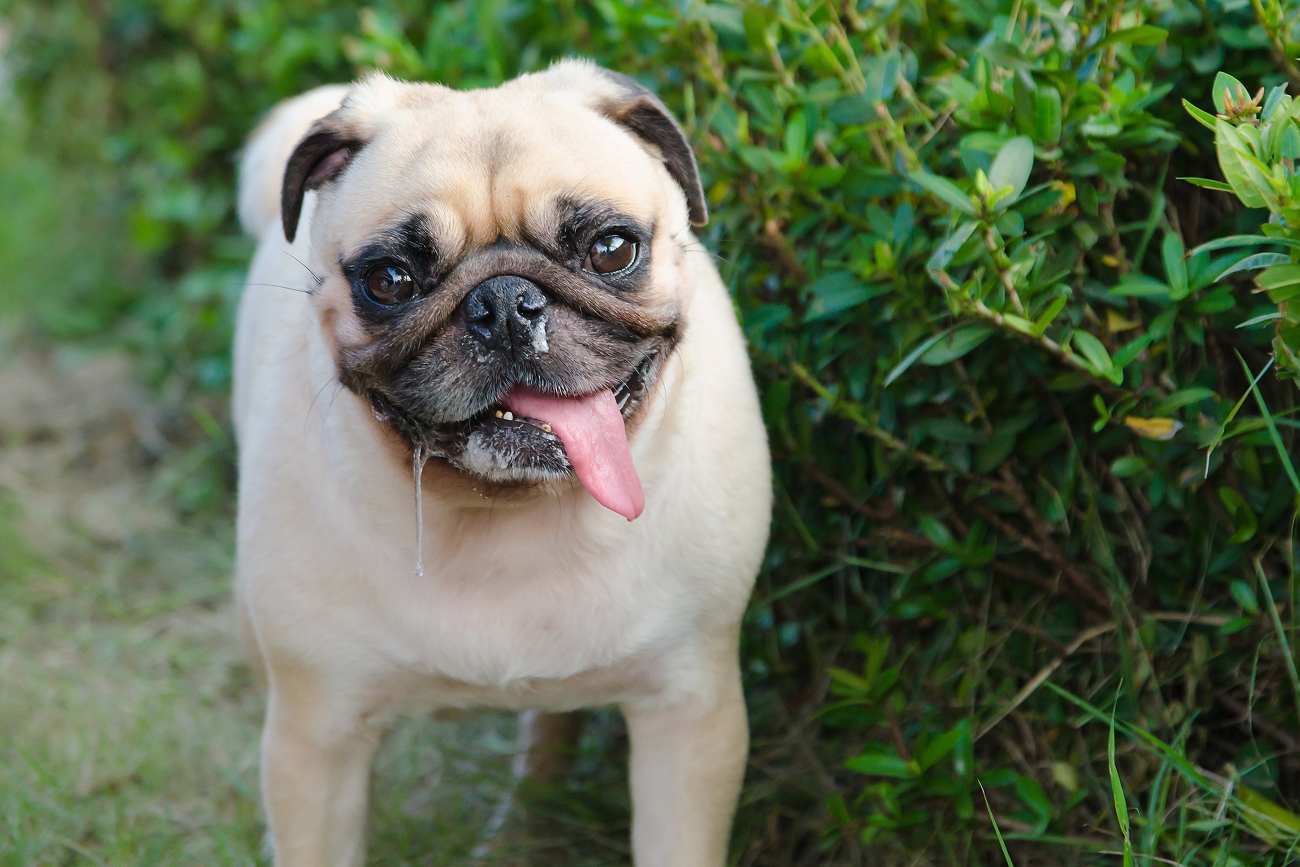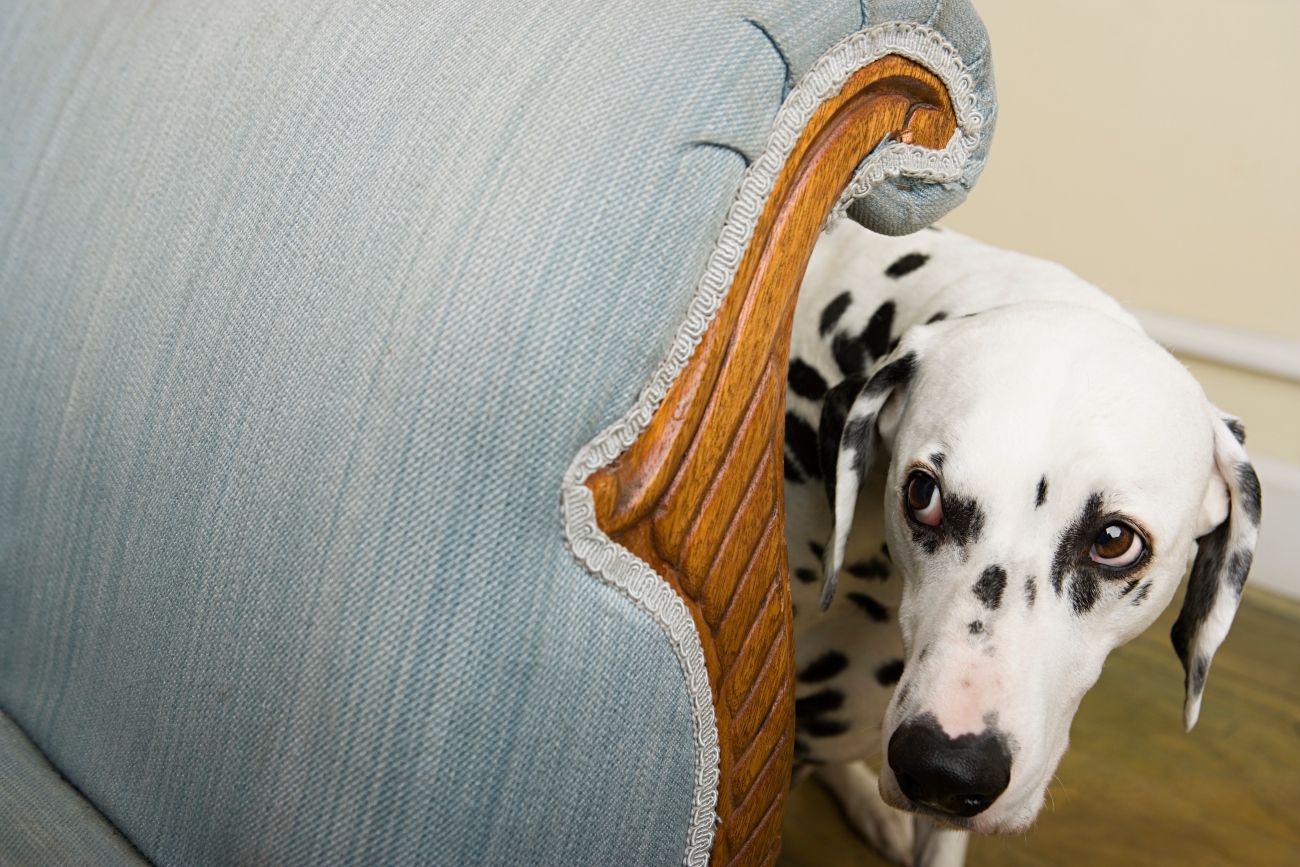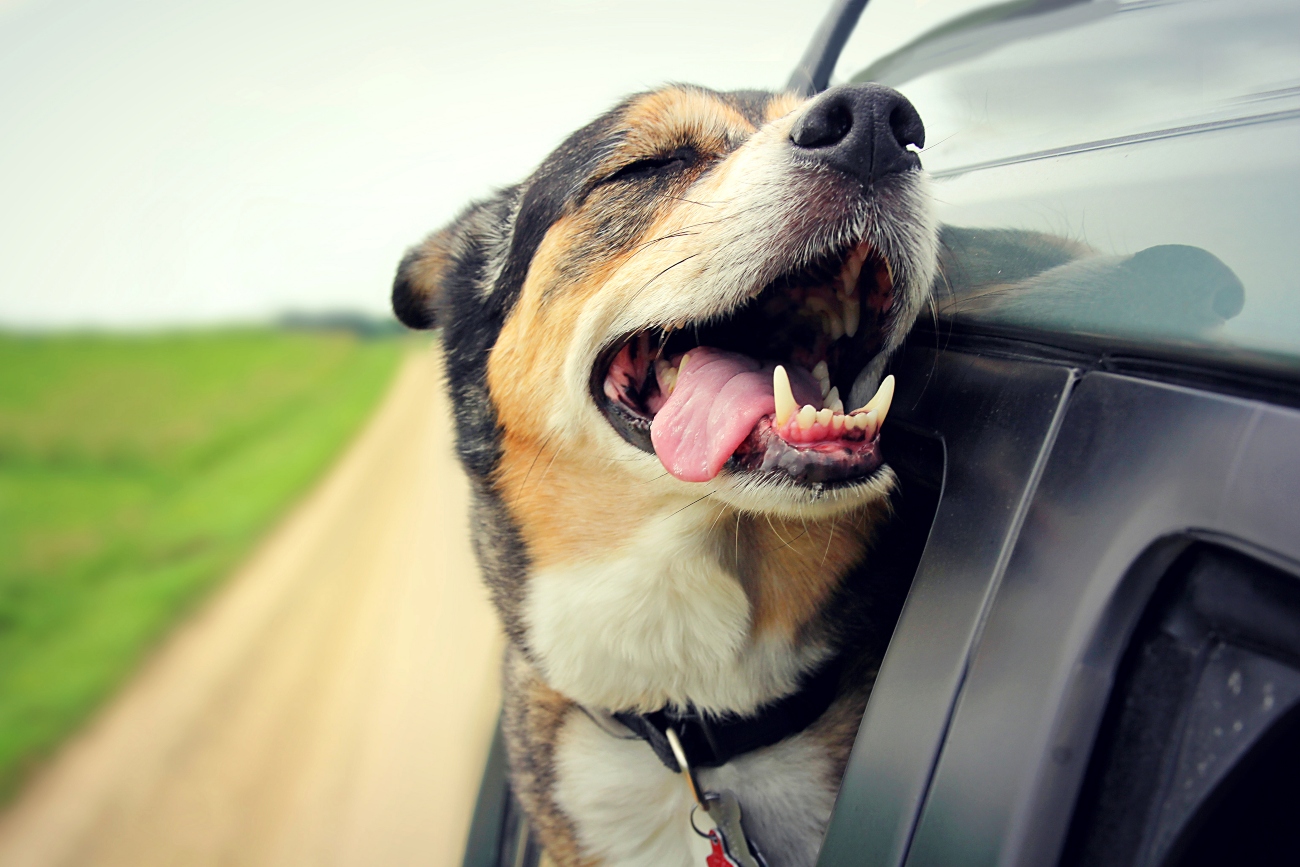
Senior canine secrets: Understanding the reasons behind your older dog's excessive drooling
23rd May, 2023
As your beloved furry friend enters their golden years, you may begin to notice changes in their behaviour and health. One such change might be the sudden onset in drooling, leaving you puzzled and concerned. You might be wondering: why is my older dog drooling so much?
In this comprehensive guide, we will explore the possible causes behind this increase in salivation, provide tips for maintaining your older dog's oral health, and offer advice on when to consult a veterinarian for drooling concerns.
Introduction to senior canine health
Senior dogs, just like their human counterparts, experience various age-related changes, including a decline in energy levels, mobility issues, and cognitive decline. As a responsible dog owner, you should be aware of these changes and adapt to your dog's evolving needs, ensuring they continue to lead a happy and healthy life.
Aging can also result in several health issues that can be easily overlooked or mistaken for normal signs of ageing. One such issue is excessive drooling, which, while not necessarily a cause for alarm, can be a symptom of underlying medical or behavioural concerns.
Understanding why your senior dog is drooling so much is crucial to addressing the problem and providing the necessary care and support.
Is it normal for dogs to drool?
Is it normal for dogs to drool? Absolutely! Drooling is a natural and common behaviour in our canine companions. In fact, it serves several important purposes, such as aiding in digestion and cooling down their bodies.
However, excessive drooling can be a cause for concern, as it may indicate an underlying health issue or breed-specific tendency.
Remember, a happy and healthy dog is a drooling dog, but knowing the difference between normal and abnormal drooling will ensure you can address any issues promptly and keep your pet in tiptop shape.
So, let's embrace those slobbery kisses and appreciate the fact that drooling is just another adorable quirk of our beloved four-legged friends.
Types of dogs that drool the most
Dog breeds that drool may not be everyone's first choice for a furry companion, but these slobbery canines have their own unique charm that will surely win your heart.
Known for their excessive salivation, these breeds often have lovable personalities and impressive physical attributes that make them worth considering.
1. Saint Bernard
- Originating from the Swiss Alps, Saint Bernards are known for their large size and friendly nature.
- Their loose jowls often result in excessive drooling, especially after eating or exercising.
2. Newfoundland
- Native to Canada, Newfoundlands are large, strong dogs with a gentle temperament.
- Their thick coat and loose lips make them prone to drooling, which can be quite messy.
3. Mastiff
- Mastiffs are one of the largest dog breeds, known for their strength and loyalty.
- Their loose skin around the mouth contributes to their excessive drooling habits.
4. Bulldog
- Originally bred for bull-baiting in England, Bulldogs are now popular companions due to their loving nature.
- Their distinctive facial structure, with wrinkled skin and a pushed in nose, causes them to drool more than other breeds.
5. Bloodhound
- Known for their exceptional sense of smell, Bloodhounds have been used in search and rescue missions for centuries.
- Their loose jowls and long ears contribute to their drooling tendencies.
6. Great Dane
- Great Danes are one of the tallest dog breeds and make great family pets due to their gentle nature.
- Their large size and loose lips result in excessive drooling, especially after eating or drinking.
7. Boxer
- Boxers are energetic and friendly dogs, often used as working or service dogs.
- Their unique facial structure contributes to their drooling habits.
8. Dogue de Bordeaux
- Also known as the French Mastiff, the Dogue de Bordeaux is a powerful and loyal breed.
- Their loose jowls and strong build make them prone to drooling.
9. Bernese Mountain Dog
- Hailing from Switzerland, Bernese Mountain Dogs are large, friendly, and intelligent.
- Their size and loose lips can cause them to drool more than other
Types of dogs that drool the least
1. Whippet
- Known for their lean bodies and grace, Whippets are considered one of the least drooling dog breeds.
- They have a small head and tight lips, which contribute to minimal drooling.
2. Poodle
- Poodles come in various sizes (Toy, Miniature, and Standard) but all have one thing in common – they drool very little.
- Their tightfitting lips and minimal shedding make them a popular choice for allergy sufferers.
3. Shiba Inu
- This Japanese breed is known for its fox-like appearance and independent nature.
- Shiba Inus are fastidious groomers and drool very little due to their compact facial structure.
4. Boston Terrier
- Often called the "American Gentleman," Boston Terriers are known for their tuxedo-like markings and minimal drooling.
- Their short snout and tight lips contribute to their reputation as a low drooling breed.
5. Basenji
- Hailing from Africa, Basenjis are unique for their almost catlike grooming habits and inability to bark.
- This breed is also known for its minimal drooling, attributed to their tight lips and compact facial structure.
6. Greyhound
- These elegant, long legged dogs are known for their racing abilities, but they are also great companions.
- Greyhounds drool very little, thanks to their streamlined head shape and tight lips.
7. Dalmatian
- Famous for their unique spots, Dalmatians are known for being intelligent and energetic.
- Their tight lips and lean faces contribute to the breed's minimal drooling.
8. Papillon
- Named for their butterfly-like ears, Papillons are small, intelligent, and affectionate dogs.
- Their small size and dainty facial structure result in minimal drooling.
9. Maltese
- This small, white breed is known for its silky hair and sweet temperament.
- The Maltese's compact facial structure and tight lips result in very little drooling.
10. Chihuahua
- As the smallest dog breed, Chihuahuas are known for their feisty personalities and minimal drooling.
Common causes of excessive drooling in senior dogs
Excessive drooling or hyper salivation in older dogs can be triggered by a variety of factors, ranging from dental problems and anxiety to more serious medical conditions. Identifying the underlying cause is the first step towards finding an appropriate solution and ensuring your dog's well-being.
In the following sections, we will delve deeper into the possible reasons behind your senior dog's excessive drooling, helping you gain a better understanding of this common issue and how to tackle it.
Understanding excessive drooling in older dogs
Before we discuss the specific causes of excessive drooling, it's important to understand that drooling is a natural and necessary process for dogs.
Saliva helps with digestion, oral hygiene, and even temperature regulation. However, when drooling becomes excessive or sudden, it can be a bad sign that something is amiss. As pet parents, it's crucial to pay attention to any changes in your dog's behaviour or appearance, including excessive drooling.
It's also important to note the context in which the drooling occurs, as it can provide valuable clues to the underlying cause. For example, if your dog drools excessively only during meal times, it could be due to excitement or anticipation of their dog food.
However, if drooling occurs randomly and is accompanied by other unusual symptoms, it may be time to seek out veterinary treatment.
Medical conditions causing excessive drooling in older dogs
There are several medical conditions that can cause excessive drooling in senior dogs, some of which can be quite serious. Some common medical conditions that may result in increased salivation include:
- Gastrointestinal issues: Problems with the digestive tract, such as acid reflux, gastritis, or even an obstruction, can cause excessive saliva. In such cases, the drooling is often accompanied by other symptoms such as vomiting, diarrhoea, or loss of appetite.
- Heatstroke: Dogs, especially senior ones, are susceptible to heatstroke, which can lead to heavy panting, excessive drooling, and even collapse. Always ensure your dog has access to shade and fresh water on hot days and avoid overexerting them during the hottest hours.
- Toxin exposure: Ingestion of toxic substances, such as chemicals, poisonous plants, or even certain human foods (e.g., chocolate, grapes) can cause excessive drooling in dogs. If you suspect your dog has ingested something toxic, seek attention from a vet immediately.
- Neurological issues: Conditions affecting the nervous system, such as vestibular disease or epilepsy, can also result in excessive drooling. If your dog shows signs of disorientation, loss of balance, or seizures, consult your veterinarian as soon as possible.
- Foreign objects: If you notice your canine companion salivating excessively, immediately inspect their mouth. Examine the tongue, teeth, and gums for potential hazards such as splinters or bone fragments. Keep in mind that when providing your dog with a bone to gnaw on as a reward, it may not fracture evenly, leading to splintering and pieces of bone lodging in their mouth.
Dental issues and drooling in senior dogs
One of the most common reasons for excessive drooling in older dogs is dental problems. As dogs age, they become more prone to dental issues such as:
- Periodontal disease
- Tooth decay
- Gum infections
These conditions can cause pain and discomfort, leading to increased salivation as your dog attempts to soothe their mouth.4
Regular dental checkups and cleanings can help prevent these issues and ensure your dog's oral health is in tiptop shape. Additionally, providing dental chews and toys, along with brushing your dog's teeth regularly, can aid in maintaining good oral hygiene.
Anxiety and stress-related drooling in old dogs

Just like humans, many dogs can experience anxiety and stress, which can manifest as excessive drooling. Senior dogs may be more susceptible to anxiety due to age-related cognitive decline, decreased mobility, or changes in their environment.
If your dog seems anxious or stressed, consider the following tips to help them feel more at ease:
- Provide a safe and comfortable space where your dog can retreat when feeling overwhelmed.
- Maintain a consistent routine to provide stability and predictability for your senior dog.
- Consider using calming aids, such as pheromone diffusers, calming collars, or anxiety vests.
- Consult with a veterinarian about potential underlying medical issues or medications that can help alleviate anxiety and stress.
Behavioural reasons for increased salivation in senior dogs
In some cases, excessive drooling in older dogs may simply be a behavioural response to certain stimuli. For example, your dog may drool more when anticipating food, during car rides, or in response to certain smells.
While these behavioural triggers may not necessarily be harmful, it's essential to monitor your dog's drooling and ensure it's not a sign of a more serious issue.
Why does my dog drool in the car?
Drooling in the car can be attributed to a variety of factors that may be physical, psychological, or even a combination of both. Understanding the reasons behind this phenomenon can help you address the issue and make your dog's car rides more comfortable.
Motion sickness
Just like humans, dogs can experience nausea and discomfort due to the movement of the vehicle. This can lead to excessive drooling as their body's natural response to counteract the feeling of sickness.
In such cases, consult with a veterinarian who may prescribe anti nausea medication to alleviate your dog's symptoms.
Anxiety
Many dogs are not comfortable with car rides, especially if they have had negative experiences in the past. This anxiety can manifest as excessive drooling, panting, or even whining.
To help your dog feel more at ease during car rides, try creating a calm and comfortable environment. You can use familiar blankets or toys, and even consider using a dog seatbelt or crate to secure them during the journey.
Is drooling a sign of pain?
While drooling can be an innocent and natural occurrence in some instances, it may also indicate discomfort or distress in others. One must carefully observe the context and accompanying symptoms to determine if the drooling is indeed a sign of pain.
Factors such as:
- Facial expressions
- Body language
- Changes in behaviour
These factors can all provide valuable clues to assess the situation more accurately.
How to manage and reduce drooling in your old dog
Once you've identified the cause behind your senior dog's excessive drooling, you can take appropriate steps to manage and reduce the issue.
Depending on the underlying cause, this may involve:
- Addressing dental issues through regular checkups, cleanings, and at home dental care.
- Providing a stress free environment and using calming aids to help alleviate anxiety.
- Consulting with a veterinarian about potential medications or treatments for medical conditions causing excessive drooling.
- Ensuring your dog stays cool and hydrated during hot weather to prevent heatstroke.
Tips for maintaining your older dog's oral health
Proper oral care is necessary for your senior dog's overall health and wellbeing. Here are some tips to help maintain your dog's dental health:
- Schedule regular dental checkups and cleanings with your veterinarian.
- Brush your dog's teeth daily using a dog toothbrush and dog-friendly toothpaste.
- Provide dental chews and toys that can help clean your dog's teeth and massage their gums.
- Monitor your dog's mouth for any signs of dental issues, such as bad breath, red or swollen gums, oral disease or difficulty eating.
When to consult a vet for drooling concerns
If your senior dog's drooling excessively is accompanied by other concerning symptoms, such as:
- Vomiting
- Diarrhoea
- Difficulty breathing
- Sudden changes in behaviour
If your dog's drooling persists despite addressing any potential dental or behavioural issues, it may be time to seek professional help to ensure there isn't an underlying medical condition at play so it's important to consult with a veterinarian as soon as possible.
Supporting your senior dog's overall well-being
As your dog ages, you should provide the necessary care and support to ensure they continue to live a happy and healthy life. This includes regular veterinary checkups, a balanced diet, appropriate exercise, and plenty of love and attention.
By addressing any concerns, such as excessive drooling, promptly and effectively, you can help your senior dog enjoy their golden years to the fullest.
The importance of understanding your older dog's drooling

Excessive drooling in older dogs can be a sign of various medical, dental, or behavioural issues.
By understanding the potential causes and taking appropriate steps to address the problem, you can help improve your senior dog's quality of life and overall well-being.